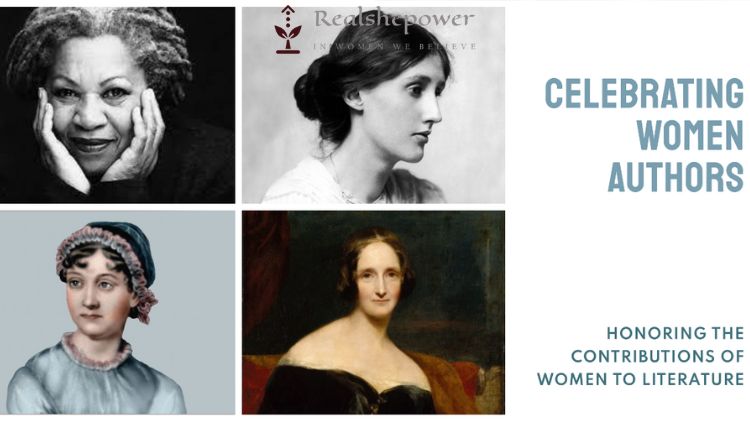Pioneers in Literature: Women Authors who Redefined Storytelling


Literature, a mirror to society, has been shaped and reshaped by countless authors over the centuries. Among these are women writers who, against all odds, carved niches for themselves and redefined storytelling. Their tales weren’t just stories; they were revolutions penned down, challenging norms and breaking boundaries. Let’s embark on a journey through time, celebrating these pioneering women in literature.
1. Jane Austen (1775-1817): The Social Commentator
In an era where women’s roles were rigidly defined, Jane Austen emerged as a beacon of subtle rebellion. Her novels, including “Pride and Prejudice” and “Sense and Sensibility,” delved deep into the intricacies of British society. Austen’s sharp wit and keen observations highlighted the constraints of class and the limited prospects for women. Through her strong, nuanced female characters, Austen questioned societal norms, making her works timeless classics.
2. Mary Shelley (1797-1851): The Mother of Science Fiction
At the tender age of 20, Mary Shelley birthed a genre. “Frankenstein; or, The Modern Prometheus” is often hailed as the first science fiction novel. Shelley’s exploration of scientific ambition, ethics, and human nature was groundbreaking. In a world teetering on the edge of industrial revolution, Shelley’s cautionary tale resonated deeply, proving that women could venture beyond romance, into the realms of horror and science fiction.
3. Virginia Woolf (1882-1941): Stream of Consciousness Pioneer
Virginia Woolf wasn’t just an author; she was a literary innovator. With works like “Mrs. Dalloway” and “To the Lighthouse,” Woolf introduced readers to the ‘stream of consciousness’ narrative technique. Her introspective exploration of the inner thoughts of her characters was a departure from the straightforward storytelling of her time. Beyond her narrative style, Woolf’s themes of feminism, mental illness, and existentialism placed her firmly as a trailblazer in modernist literature.
4. Zora Neale Hurston (1891-1960): A Voice from the Harlem Renaissance
Zora Neale Hurston’s “Their Eyes Were Watching God” is a cornerstone in African-American literature. Set in the deep South, Hurston’s novel was a powerful exploration of race, independence, and womanhood. Her lyrical prose and strong characters provided a unique voice during the Harlem Renaissance, a voice that spoke of the Black experience in America, with all its pain and beauty.
5. Toni Morrison (1931-2019): Chronicler of the Black Experience
Nobel laureate Toni Morrison’s works are a profound exploration of Black identity in America. Novels like “Beloved,” “Song of Solomon,” and “The Bluest Eye” delve into the themes of racial prejudice, the search for identity, and the haunting specter of slavery. Morrison’s evocative prose and richly drawn characters make her one of the most influential authors of the 20th century.
- The Bluest Eye by Toni Morrison
- Toni Morrison: The Unforgettable Literary Legend Who Broke Boundaries and Inspired Generations
6. Isabel Allende (1942-Present): Magic Realism’s Feminine Muse
Chilean-American author Isabel Allende’s works are a mesmerizing blend of history, politics, and magic realism. Her debut novel, “The House of the Spirits,” is a multi-generational tale set against the backdrop of Chile’s political upheavals. Allende’s storytelling, infused with passion and supernatural elements, offers a feminine perspective to the magic realism genre, dominated by authors like Gabriel García Márquez.
7. Arundhati Roy (1961-Present): A Voice from the East
Indian author Arundhati Roy’s “The God of Small Things” is a poignant tale of love, caste, and betrayal. Set in Kerala, India, Roy’s semi-autobiographical novel is a tapestry of rich characters and lush landscapes. Beyond her storytelling, Roy’s commentary on India’s socio-political landscape, both in her fiction and non-fiction works, makes her a significant voice in contemporary literature.
8. Chimamanda Ngozi Adichie (1977-Present): Bridging Cultures
Nigerian author Chimamanda Ngozi Adichie’s works, including “Half of a Yellow Sun” and “Americanah,” offer a deep dive into post-colonial African identity. Adichie’s characters often navigate between Western and African cultures, offering readers a nuanced perspective on race, immigration, and feminism. Her TED Talk, “We Should All Be Feminists,” further cements her status as a global literary icon.
- Chimamanda Ngozi Adichie’s biography
- ‘It is obscene,’ Chimamanda Ngozi Adichie says on the social media cancel culture
Conclusion
The world of literature, vast and varied, owes much to these pioneering women. They didn’t just write stories; they challenged norms, broke barriers, and redefined genres. Their works, a testament to their genius, continue to inspire readers, writers, and dreamers. In celebrating them, we don’t just honor the past; we pave the way for future generations of women writers, waiting in the wings, ready to redefine storytelling once more.
You can now write for RealShePower and be a part of the community. Share your stories and opinions with us here.
